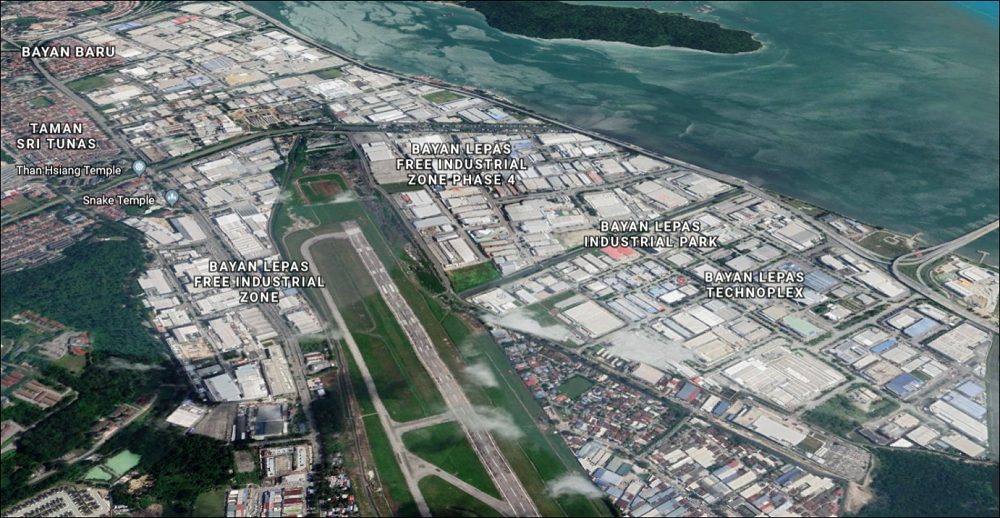MAY 20 — Our society needs constructive contribution from good NGOs (non-governmental organisations) to grow. Unfortunately in Penang, NGOs have descended to rally unwholesome causes that are discriminative, destructive and divisive.
There are more than 5,000 NGOs in Penang. Some of these are actually NGI (non-governmental individual). NGI is a civil group that claims to be representative yet led and managed only by one individual. These NGIs often issue statement under the individual’s name, conduct press conference by the individual alone, and do social media Live video in selfie-mode.
Certain NGOs are at the forefront of criticising Penang State Government’s projects. We want to be clear that we support critical questioning of government’s projects, regardless they are at State or Federal level, as long as those questions are constructive and proposals are subjected to accountability.
However, more often than not, we find that these NGOs have failed in these two aspects. Their questions are not constructive and their proposals lack accountability.
When State Government wanted to redevelop the Penang International Sports Arena (PISA) in 2010, the NGOs objected it. The state government went ahead and transformed PISA into the present Subterranean Penang International Convention and Exhibition Centre (SPICE).
SPICE is currently the largest convention centre in the northern region of West Malaysia. It certified as a Green Building, and has become the first hybrid solar-powered convention centre in the world.
SPICE has contributed to Penang’s business events industry that has an estimated economic value of RM1.3 billion in 2018. This is a 31 per cent increase from 2017, since the opening of SPICE. Local restaurants, hotels, local suppliers, and other commercial businesses have benefited from this multiplying effect.
The construction of the Second Bridge, the upgrading of Penang Hill funicular train, the widening of Jalan Masjid Negeri, and other projects were similarly met with NGOs’ objections, though these projects, now completed, are benefiting Penangites and the state.
We were fortunate that the Bayan Lepas Free Industrial Zone could be developed on former paddy fields before the NGOs came around to voice their opposition. Yes, farmers were affected. Yet, without this development, Penang would have remained a farming state today, and the majority of this present generation would remain farmers. If the NGOs have had their way, would they be held accountable for the loss of jobs, business opportunities and benefits?

No. They will be let off without any consequence while Penangites are deprived of these developments and their benefits.
The NGOs claim to be neutral and conflict-free, yet we find that those NGOs that object against certain development are often driven by their own interest.
For instance, NGOs opposing the construction of certain road are composed of resident associations of property owners who are afraid that the new road will lower their property prices. Similarly, NGIs claiming to preserve old buildings for their historical values are actually in the business of publication and tourism that are based in these structures.
This is what Peter Gourevitch, David Lake, and Janice Stein warned us about: “NGOs may develop specific organizational interests and cultures, sometimes referred to as pathologies, which can lead them away from their ethical principles.” (The Credibility of Transnational NGOs, Cambridge University Press, 2012)
Politicians are held accountable by election. If politicians do not perform well, they will be voted out.
NGOs are spared from such accountability. For instance, NGOs are not answerable to anyone when job opportunity is lost and economic growth stagnated due to their objection against certain projects. They can go on with their lives without risking any consequences for their action.
In other words, the NGOs are not subjected to external verification. They can say anything they want and criticise anything they like, while still remain as NGOs.
A good example is the NGOs’ allegation that the construction of the Pan Island Link 1 will affect precision manufacturing factories in Bayan Lepas area, despite the fact that daily high-frequency flights and the construction and high usage of the Bayan Lepas expressway have not resulted in any complaint from the nearby factories.
Politicians put their career at risk through their campaign. The cost for accountability is extremely high for them. But not so for the NGOs. They are sheltered from the consequences of their action, with zero cost of accountability.
NGOs stir public opinion yet deny that they have political influence. At times, NGOs and political party share common cause, like Penang Barisan Nasional GE14 manifesto that was said to be in line with some of Penang’s most vocal NGOs.
NGOs would naturally deny that they have any political power. Nevertheless, the fact that they have the capability to sway public opinion to side with one or another political party shows that this is a lie which they want the world to believe in so that their political power can remain masked. These NGOs would want everyone to think that their objection against the present government is without political agenda.
If there is a difference between NGOs and politicians, it is that the latter is subjected to election as their cost for accountability, while NGOs has no such cost. NGOs are accountability-free.
While we appreciate the role played by NGOs within a democratic context, we should remain mindful and conscious that the appearance of impartiality projected by them could well be a deceiving camouflage of any hidden agendas. Therefore, NGOs must be held accountable too.
* Timothy Tye is a spokesperson of civil group AnakPinang and a former council member of Penang Heritage Trust. Joshua Woo is a former councillor of the Seberang Perai Municipal Council.
** This is the personal opinion of the writer or publication and does not necessarily represent the views of Malay Mail.





















